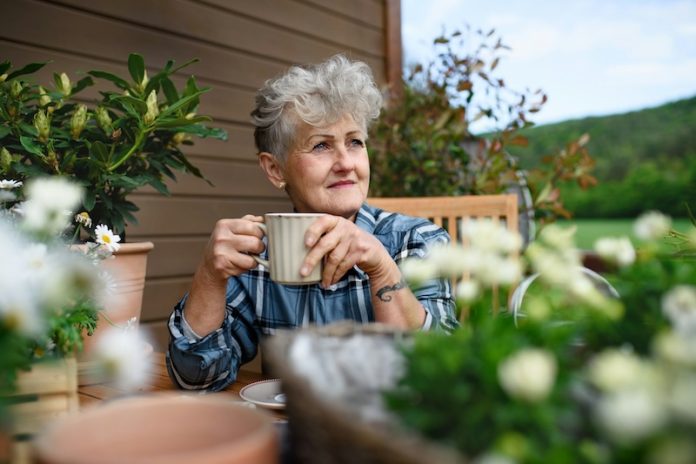
Researchers from the University of Kentucky Markey Cancer Center have shared encouraging early results from a new clinical trial testing a unique coffee-based product as a possible maintenance therapy for ovarian cancer. The findings were presented at the Society of Gynecologic Oncology’s annual meeting (SGO 2025) in Seattle.
The study looked at a product called ArtemiCafe Decaf, a commercially available decaffeinated coffee that contains a small, controlled amount of Artemisia annua.
This plant, also known as sweet wormwood, has a long history of use in traditional medicine and is best known for its role in treating malaria. More recently, scientists have begun exploring its potential to fight cancer.
In this Phase 1 clinical trial, patients with ovarian cancer were asked to drink four cups of ArtemiCafe Decaf per day. The main goal of this early-stage study was to check if the product was safe and well-tolerated after standard cancer treatments like surgery and chemotherapy.
The good news: researchers found no safety concerns, and patients tolerated the coffee well. However, more time and follow-up are needed to see whether this approach can actually help prevent cancer from returning.
Dr. Frederick Ueland, a gynecologic cancer specialist at the Markey Cancer Center, said this type of study is important because it offers a new idea for managing ovarian cancer after primary treatment. “Finding a well-tolerated maintenance therapy that could potentially delay or prevent recurrence would be transformative for ovarian cancer care,” he said.
This work builds on earlier research from the same center. In lab studies, scientists discovered that artesunate—a compound made from Artemisia annua—was able to kill ovarian cancer cells at levels that could be safely used in humans. That promising lab evidence paved the way for this human trial of ArtemiCafe Decaf.
The research team was led by Dr. Jill Kolesar, who helped start this work at the University of Kentucky and is now the dean of the University of Iowa College of Pharmacy.
Dr. Kolesar and her team continue to explore whether this natural plant extract could be turned into a simple, daily treatment for people who have already gone through the most intensive parts of cancer care.
The trial is supported by ArtemiLife, the company that makes ArtemiCafe Decaf. CEO Adam Maust said the company is committed to advancing science while creating products that are easy to use in daily life. “Artemi’s mission is to support scientific advances while producing an innovative product to integrate seamlessly into daily routines,” he said.
There’s also a local connection that makes this research even more meaningful. Kentucky is currently the only U.S. state growing Artemisia annua in significant amounts.
The University of Kentucky’s own farms grow the plant, including the Spindletop Farm operated by the university’s College of Agriculture. ArtemiLife sources its plants from farms in Georgetown and Lancaster, Kentucky.
In addition to the ovarian cancer study, ArtemiCafe Decaf is also being tested in a separate phase 2 trial for prostate cancer maintenance therapy at the same center.
This trial is still in its early stages, and it’s too soon to say whether ArtemiCafe Decaf can actually prevent ovarian cancer from coming back. However, the fact that the product is safe, easy to tolerate, and based on a natural compound with proven antimalarial and lab-tested anti-cancer properties is very encouraging.
Maintenance therapies are an area of great need in ovarian cancer care. Many patients experience a return of their disease after finishing initial treatments, and current maintenance options can be expensive, harsh, or not widely accessible. If something as simple as a daily coffee drink could offer even mild benefits, it would be a major step forward.
Still, more research is needed. The next steps include completing longer-term studies with more patients to test whether ArtemiCafe Decaf actually reduces recurrence rates or improves survival. The fact that Artemisia-based compounds like artesunate have already shown cancer-fighting activity in the lab is a hopeful sign.
In summary, this research is a creative and science-backed approach to cancer maintenance therapy. If future studies continue to show benefit, ArtemiCafe Decaf could one day offer a simple and natural way to support ovarian cancer patients after standard treatment.
If you care about cancer, please read studies about vitamin D and bowel cancer, and a cautionary note about peanuts and cancer.
For more health information, please see recent studies about the link between ultra-processed foods and cancer, and everyday foods to ward off pancreatic cancer.
Copyright © 2025 Knowridge Science Report. All rights reserved.



